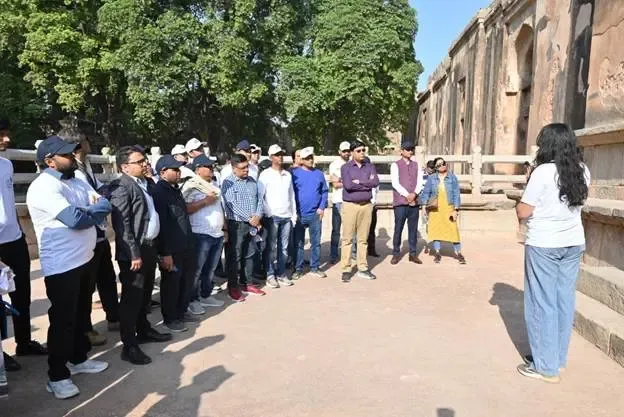Government Plans to Establish 25,000 Jan Aushadhi Kendras by March 31, 2027

Synopsis
Key Takeaways
- 15,000 Jan Aushadhi Kendras operational.
- Target set for 25,000 Kendras by March 31, 2027.
- March 7 is Jan Aushadhi Diwas.
- Health camps held at 500 locations.
- 200-fold sales surge in the last decade.
New Delhi, March 2 (NationPress) Over 15,000 Jan Aushadhi Kendras have been set up nationwide so far, and the administration has announced a target to launch 25,000 Jan Aushadhi Kendras by March 31, 2027.
At the direction of Prime Minister Narendra Modi, March 7 is observed annually as “Jan Aushadhi Diwas” to raise awareness regarding the initiative and promote generic medicines.
As in previous years, a series of events spanning a week have been scheduled at numerous locations throughout the country from March 1 to March 7.
The second day of the 7th Jan Aushadhi Diwas 2025 themed “Jan Aushadhi - Virasat Ke Saath” commenced with an early morning tour of 25 heritage sites across the nation, organized by the Ministry of Chemicals and Fertilisers.
To support senior citizens and preserve the nation’s traditions and cultures, health camps were established at Jan Aushadhi Kendras in 500 locations nationwide.
A comprehensive array of medical tests was offered at these health camps, including blood pressure checks, sugar level assessments, and free doctor consultations to foster awareness about health and the Pradhan Mantri Bharatiya JanAushadhi Pariyojana (PMBJP).
On Sunday, 25 heritage walks took place nationwide, including one at Hauz Khas in New Delhi.
The Jan Aushadhi Kendras, which supply quality medications at reasonable prices, have seen a remarkable 200-fold increase in sales, allowing citizens to save approximately Rs 30,000 crore over the past decade.
The count of Jan Aushadhi Kendras has expanded by 180 times in the last ten years.
Initiated in November 2008, the scheme is administered by the Pharmaceuticals and Medical Devices Bureau of India (PMBI).
Importantly, the PMBJP achieved sales of Rs 1,470 crore (at MRP), resulting in savings of about Rs 7,350 crore for citizens in the financial year 2023-24.










